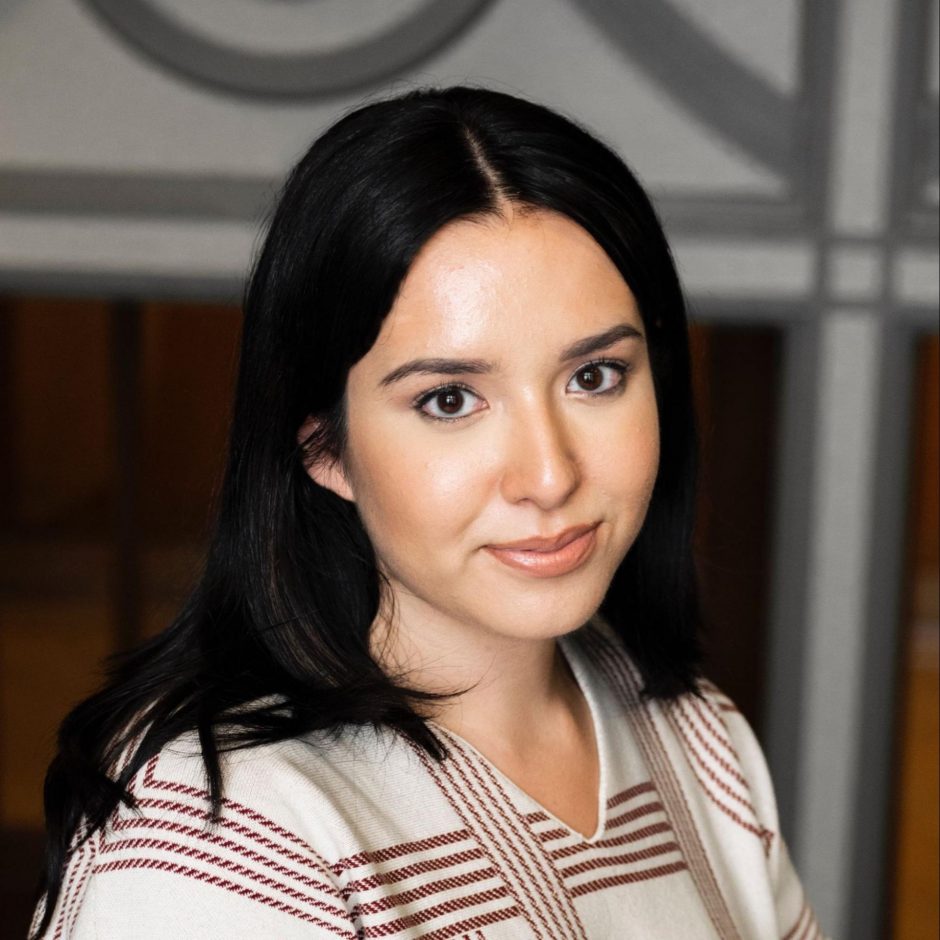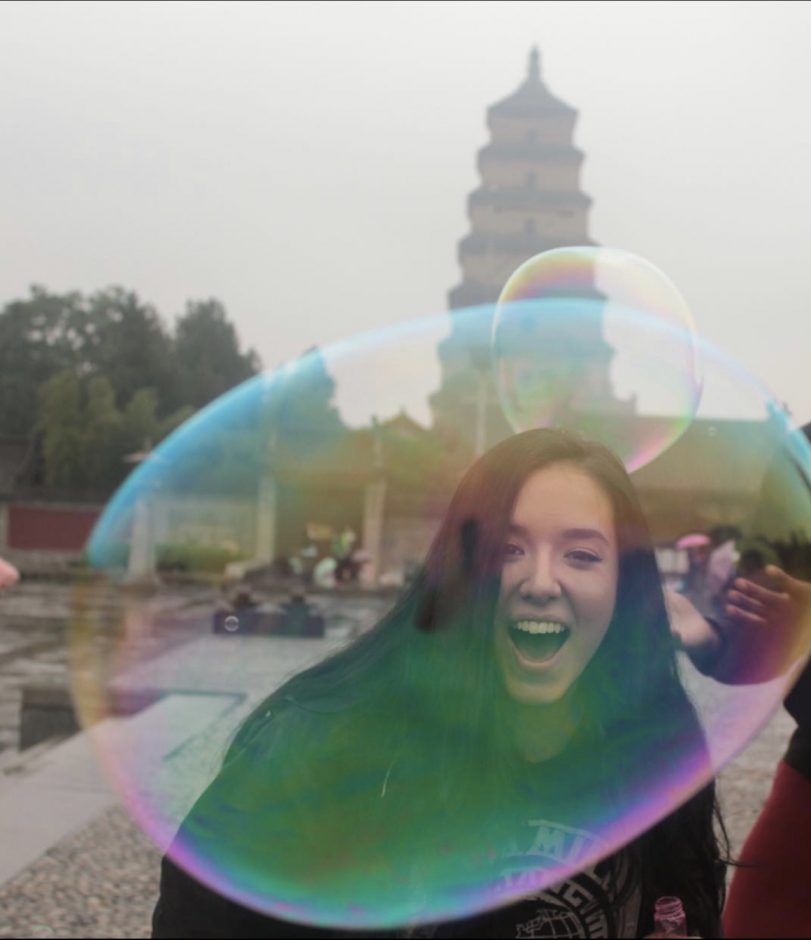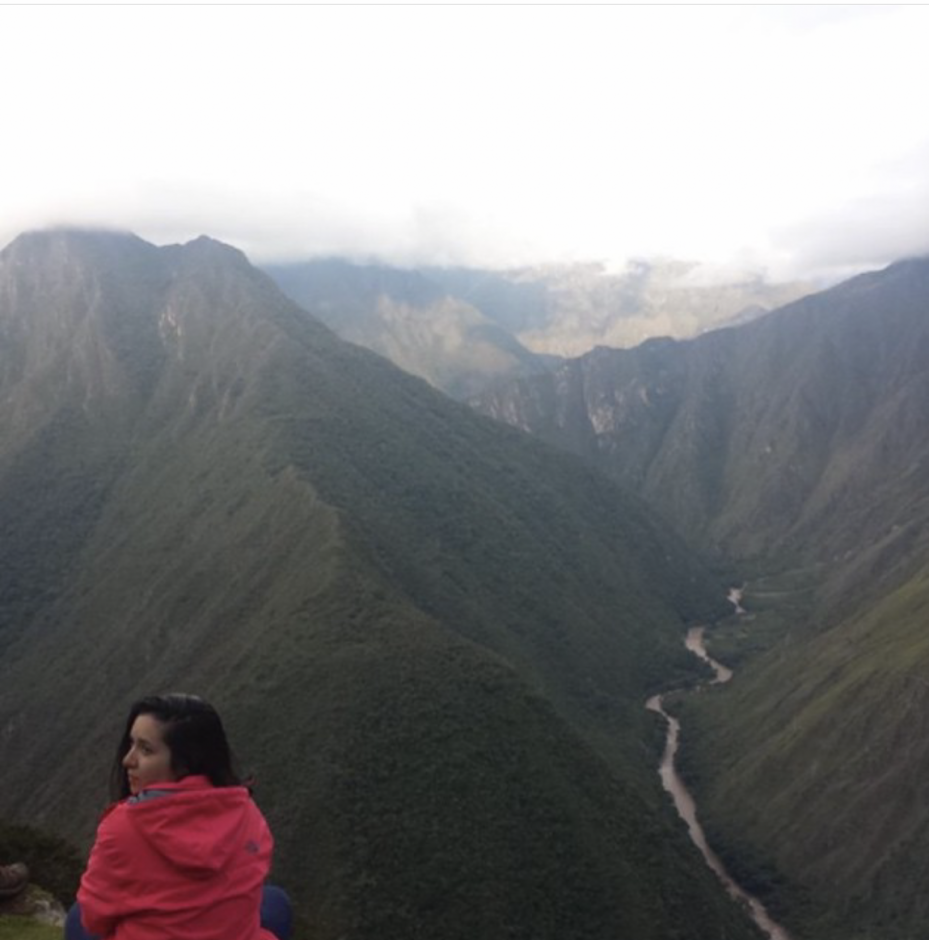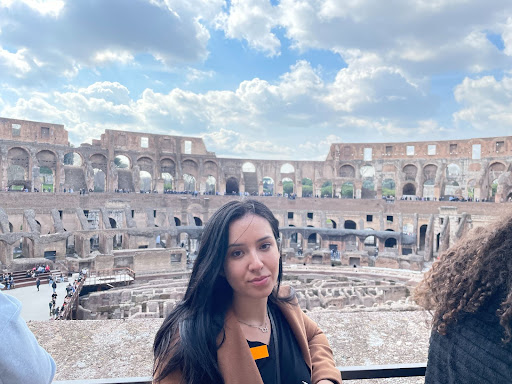
Ph.D. Candidate
Pronouns: She/Her/Hers
Office: 1400 Biological Sciences III
Email: dberisha@uci.edu
Destiny Berisha
Despite being a neuroscientist, my initial passion in school was mathematics—a love instilled by my wonderful father. In 2019, I earned my Bachelor’s degree in Biomedical Engineering from Macaulay Honors College. Before joining UCI as a Ph.D. student, I dedicated three years to investigating novel brain stimulation techniques at the Neural Engineering Group of the City College of New York, under the guidance of Dr. Jacek Dmochowski.
In 2020, I embarked on my Ph.D. journey under the mentorship of Dr. Bryce Mander and Dr. Michael Yassa. Here, I delve into the intriguing phenomenon of sleep—a behavior that, despite consuming approximately one-third of our lives, remains largely mysterious. It’s a privilege to unravel the intricacies of this enduring phenomenon, observed across evolution in all known mammalian species. My current research focuses on understanding the role of sleep in the aging process and differentiating profiles of abnormal and healthy aging by discerning changes in sleep that may be related to pathological changes happening in the brain. Working within the TNL has significantly broadened my toolkit of techniques and skills, expanding my repertoire to better study pre-clinical and clinical populations in Southern California and contributing to a more comprehensive understanding of sleep-related phenomena in aging.Lab Research Projects
I contribute to the following research areas in the Translational Neuroscience Laboratory.


It is my professional goal to merge computational methods and basic sleep science to investigate the utility of biological signals as biomarkers for early disease detection in the clinic. My doctoral research aims to determine the role of insufficient or disordered sleep, namely sleep-disordered breathing in age-related cognitive decline and Alzheimer’s disease (AD) by investigating downstream and concurrent impacts this pathology may have on the cerebrovascular and inflammatory environment in the brain. My ultimate goal is to become an independent investigator and build an interdisciplinary research group that works to understand the role that sleep plays in promoting brain health and translate this knowledge to public health recommendations and interventions. Understanding these neurobiological mechanisms that underlie basic memory function is a necessary stepping stone to identify potential targets for treating age-related memory impairments, as we will see a large aging population in the coming decades. I work with tools such as high-density electroencephalography (hdEEG) and functional magnetic resonance imaging (fMRI) to look into fundamental mechanisms in sleep that may underlie diverse cognitive aging trajectories in older adults in the hopes of advancing translational science to combat cognitive decline and Alzheimer’s disease.
Moving to California from New York has turned me into quite the outdoors-person, so I love to go on hikes, rollerblade at the beach, bike, and take walks outside while listening to some of my favorite podcasts like Ologies by Alie Ward (yay for science communication!). My favorite video game of all time is the Witcher 3 (based off of my favorite book series), with a close second being the Ghost of Tsushima. My heart is always happy when there is coffee ice cream around.
Mander BM, Dave A, Lui KK, Sprecher K, Berisha D, Chappel-Farley M, Chen I, Riedner B, Heston M, Suridjan I, Kollmorgen G, Zetterberg H, Blennow K, Carlsson C, Okonkwo O, Asthana S, Johnson S, Bendlin B, Benca RM. (2022) Inflammation, tau pathology, and synaptic integrity associated with sleep spindles and memory prior to β-amyloid positivity. SLEEP.
Nguyen DT, Berisha DE, Konofagou EE, Dmochowski JP. (2022) Neuronal responses to focused ultrasound are gated by pre-stimulation brain rhythms. Brain Stimulation. 15(1):233-243.
Nguyen, D., Berisha, D., Konofagou, E., Dmochowski, J. (2021) Differential effects of amplitude-modulated transcranial focused ultrasound on excitatory and inhibitory neurons. (preprint)
Dmochowski, G., Shereen, A., Berisha, D., Dmochowski, J. (2020) Near-infrared light increases functional connectivity with a non-thermal mechanism. Cerebral Cortex Communications.
Knotkova, H., Riggs, A., Berisha, D., Borges, H., Bernstein, H., Patel, V., Truong, D.Q., Unal, G., Arce, D., Datta, A., Bikson, M. (2018) Automatic M1-SO montage headgear for transcranial direct current stimulation (TDCS) suitable for home and high-throughput in-clinic applications. Neuromodulation.
Berisha DE, Rizvi B, Chappel-Farley MG, Chen IY, Sattari N, Dave A, Vinces K, Meza NJ, Lui KK, Neikrug AB, Benca RM, Yassa MA, Mander BA. (2022, June). Apnea in REM Sleep: A potential culprit in the tie between Obstructive Sleep Apnea and Alzheimer’s disease. Abstract (#18) presented at the 2022 Southern California Alzheimer’s Disease Centers Research Symposium. Irvine, CA, USA.
Berisha DE, Chappel-Farley MG, Malhas R, Gross TJ, Chen IY, Dave A, Lui KK, Neikrug AB, Yassa MA, Benca RM, Mapstone M, Mander BA. (2022, March). Associations between obstructive sleep apnea, anti-inflammatory interleukins, and cortical 𝛃-amyloid burden in cognitively unimpaired older adults. Abstract (#1603) presented at the meeting of World Sleep Congress in Rome, Italy.
Berisha, D. (2021, June) Local sleep features, inflammaging, and memory. Presented at a seminar for the Department of Neurobiology and Behavior, School of Biological Sciences, UCI.
Berisha, D., Chen, D., Jiang, J., Samuila, D., Tahir, A., Vazquez, H. (2019, May). Low-cost scanning acoustic microscope for imaging and cell culture stimulation. Poster session presented at the meeting of Biomedical Engineering Expo Day, the Grove School of Engineering.
Mahmood, A., Berisha, D., Harounian, J., Knotkova, H. (2019, October). tDCS-Telehealth Technology and Protocol for Successful tDCS Administration by Octogenarians for Symptom Control in Home Settings. Abstract (#11) presented at the meeting of Neuromodulation: The Science and NYC Neuromodulation.
What the lab means to me…
“I feel beyond lucky to be a part of the TNL under Dr. Yassa. I get to work with kind, talented scientists and be a part of a team that genuinely inspires and challenges me to be a better scientist myself. This is a phenomenal work environment to be a part of, whereas individuals, we are celebrated and supported by the team. With a collaborative environment like this, we work to advance the science of learning and memory together, while having a great time together as we do!“





